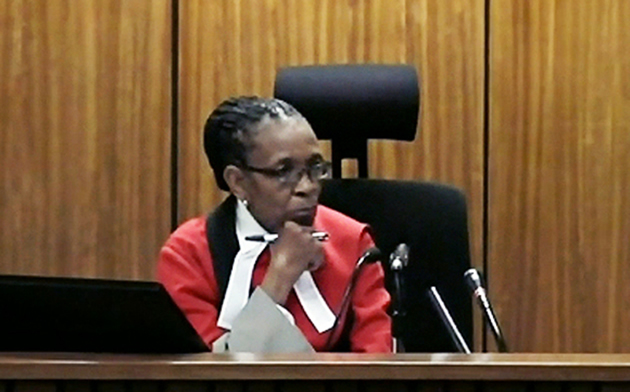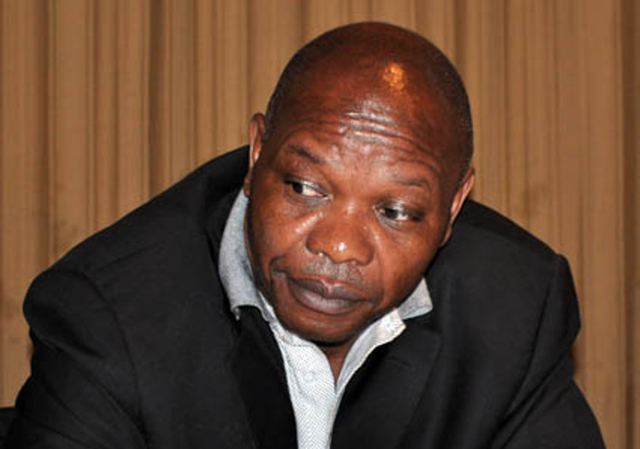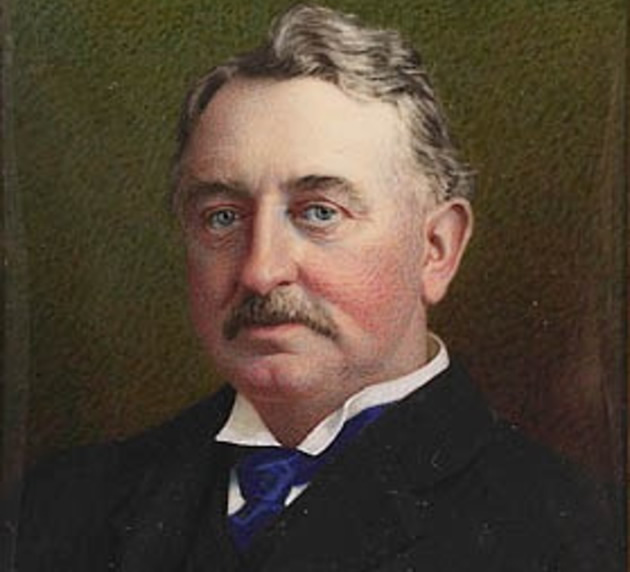Oscar Pistorius, lessons in justice

Pusch Commey Correspondent
WHEN a beautiful model is gunned down by a famous boyfriend within the context of spiralling cases of domestic and gender violence, it is tempting to see déjà vu, at first glance. And when the perpetrator admits having fired the shots that killed the deceased, the conclusion of murder cannot seem simpler in the eyes of the public.
Just over a year ago, I wrote an article titled: “The devil is in the interpretation”, for NewAfrican magazine regarding the Oscar Pistorius murder trial. At that time I was absolutely convinced that Oscar Pistorius was done and dusted for the murder of his model girlfriend Reeva Steenkamp. The only question was how much jail time.
It was simple, I presumed. On Oscar’s own version, if you think there is an intruder in your bathroom and you take a gun and cock it; you walk up to that bathroom and fire four shots through the door into that bathroom, surely you must foresee that those shots might kill a person. It does not matter that the person turned out to be your sleeping girlfriend. The spirit of the legal principle dolus eventualis says you must be found guilty of murder.
Time and time again the dolus eventualis principle has been applied with venom in the South African High Court, especially in cases of robbery and murder. For example, if a criminal gang of 10, with 2 firearms, rob a shopping mall, a shoot-out with security ensues, and people die, often all 10 robbers, if properly identified, get convicted of murder — based on dolus eventualis.
Even those who did not pull the trigger, such as the driver of the getaway car parked some distance away, get convicted of murder because as some judges reason, they should have foreseen that when they set out together to rob the mall, the guns would be used. They foresaw that there might be resistance and a shoot-out would ensue that would lead to the death of somebody.
The Pistorius verdict by Judge Thokozile Masipa has received mixed reactions, with some factions even scandalising the judge. But Judge Masipa and assessors had the benefit of sitting and listening to the case every day in all its detail, as well as examining exhibits, and fleshing out the heads of arguments of counsel on both sides. They also had the benefit of legal research. There was no knee-jerking.
But perhaps Judge Masipa’s judgment could be better explained.
One needs a closer examination of the facts, the interpretation of the facts and interpretation of the law. And one must bear in mind that the onus is on the state at all times to prove its case beyond reasonable doubt. In layman’s terms, the state must be absolutely convincing, even though there might be some minor questions here and there (my interpretation).
To recap, Pistorius admitted from day one, that he fired the four shots into the bathroom door that killed his girlfriend. The point of departure was that he said “I thought it was an intruder”. He was the only eye-witness.
To get a conviction the state needed to prove that Pistorius’ version was false beyond reasonable doubt. That included its own evidence and evidence led by Oscar. It is accepted that Oscar was a very poor witness, and some of his witnesses too, but that is not where the enquiry ends.
In addition, the question is: was the state’s evidence solid enough to wrap up the case, to reach the threshold of beyond reasonable doubt? This is what is called the totality of the evidence. And it must be looked at dispassionately
But that did not end up being the case. WhatsApp messages, inconclusive expert evidence, and what people woke up to or heard on that Valentine’s Day morning when Steenkamp met her brutal death, could not be deemed reliable. Judge Masipa said no finding technology (eg phone records) more reliable instead.
The timelines of what happened that night favoured Oscar’s version of events. Besides, when witnesses arrived at the scene immediately after the shooting they found a broken Oscar trying to resuscitate Reeva, and praying to God to save her. His words even at that stage were “I thought it was an intruder”. These facts were not contested, and that in essence was consistently his story.
Can we then say that beyond a shadow of doubt Oscar did intentionally or otherwise kill his girlfriend? Which brings me back to the spirit of dolus eventualis (intruder or no intruder). Maybe unfortunately for this case, this principle has what we call a subjective test.
The subjective test takes account only of the state of mind of the accused, the issue being whether the accused himself or herself foresaw the consequences of his or her act. Which means, the judge had to put herself in the shoes of Oscar Pistorius.
In preferring his version of an intruder, she had to determine whether he should have foreseen and therefore did foresee the possibility that firing four shots through a bathroom door into a confined space, would kill whoever was inside, and nevertheless reconciled himself to firing those shots. This is where the real issue is.
Legal parlance
In times of trouble, judges receive guidance from their ancestors. In legal parlance it is called Authority. And those are cases in the past which have dealt with similar legal issues. Often times there are competing cases. If in doubt, the better wisdom is the one decided in the higher courts: Supreme Court (Previously Appellate Division, A – in South Africa , Constitutional Court.)
How to go about walking in another man’s shoes has been another difficulty of interpretation by the highest courts. Especially when the circumstances of each case differ. If the test was objective it would have been simpler: What would the ordinary reasonable man, ie: you and me have done if we thought there was an intruder at night in the bathroom, assuming that you and me are fairly normal people, under all circumstances. Of course, we would not fire four shots through the door in the manner Oscar did.
The judge took guidance from the case of S v Bradshaw ( 1977 (1)PH 60 (A). In this seminal case, Judge Wessels said: “The court should guard against proceeding too readily from “ought to have foreseen” to “must have foreseen” and thence to “by necessary inference in fact foresaw” the possible consequences of the conduct being enquired into. The several thought processes attributed to an accused must be established beyond reasonable doubt, having due regard to the particular circumstances which attended the conduct being enquired into.”
It is an extremely dicey, difficult task. If we take Oscar’s version, and we place ourselves in his shoes; Oscar the anxious person who sleeps with a gun under his pillow or nearby, out of an irrational fear of crime. He is a double amputee who has grappled with this vulnerability since he was little.
That night he was on his stumps. All that considered among other things, would he (in the heat of the circumstances) have acted like the proverbial normal you and me, and thought that if I fire four shots into the door, it might kill the intruder? Was he thinking straight? If we became Oscar would we have been thinking like any normal person, such that we would foresee and reconcile ourselves to the fact that firing those shots out of fear would kill someone? If there is a reasonable possibility that, taking into account his set of circumstances, he may not have thought of, or foreseen the outcome, and may have recklessly fired in the hope of shooing the alleged intruder away (rain, rain, go away), then he should be entitled to the benefit of the doubt.
In effect he may not have foreseen or reconciled himself to the possibility that the proverbial intruder would be hit. Sadly it turned out to be his girlfriend, who was spending the night before Valentine’s with him.
The next enquiry is whether he was reckless or negligent in his actions. In this case, the objective test applies. For example if you jump into your Ferrari, and drive at 200km/hr on a 60km road and you end up killing a pedestrian, then the objective test applies. All things being equal you would be found guilty of culpable homicide.
Why? You would be judged like a normal person unless you were clinically insane, or otherwise in law. You would have had the time to consider the consequences of driving at that speed. You and me would foresee that we could kill someone driving at that crazy speed.
The judge would not step into your shoes to consider whether you had been fighting with your wife that morning prior to jumping into your car in a fit of anger. That may be considered at the sentencing stage. Like in Oscar’s case, there was sufficient time to consider the consequences of your actions, and take alternative measures (slow down), prior to the fatal accident.
Pistorius has been convicted of culpable homicide and his sentence is still due. But looking at the dolus eventualis principle, it is a regular in South African courtrooms. And this troubled spirit will continue to be with us for sometime, unless our highest court decides to put it to rest, or help us understand it better.
- Pusch Commey is a Barrister of the High Court of South Africa, Award winning writer and associate editor of New African Magazine since 1999. He is based in Johannesburg South Africa. He is the author of 9 books including the best selling 100 great African kings and queens, and Tofi’s Fire Dance. He is also the CEO of the South African based Real African Publishers, and the founder of the Real African Writers series.








Comments